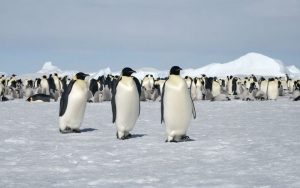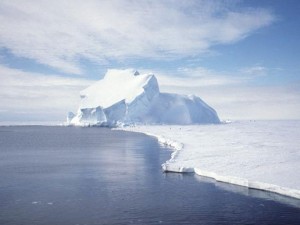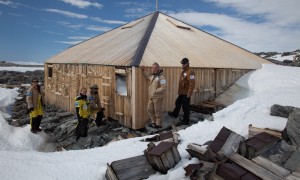Local News

Why Did The Worlds 2nd Largest Emperor Penguin Colony Disappear?
In 2016, the world’s 2nd largest emperor penguin colony had been wiped out overnight. Thousands of emperor penguin chicks drowned after an ice shelf in Antarctica collapsed. In the years following the catastrophic collapse of the ice shelf at Halley ...

Ice Levels In Antarctica Increasing
Cynic contentions that Antarctica is picking up ice every now and again rely on a slip of oversight, to be specific overlooking the contrast between area ice and ocean ice. In glaciology and especially regarding Antarctic ice, not everything is ...

Planet Has More Trees
The last study showed that the world has about 3 trillion trees. That is over the estimate of 400 billion in previous studies. Researchers did a count by actually going out and physically counting trees, using satellite imagery, ground survey, ...

Climate Research Expedition to Antarctica via Airbnb
If you are interested in a research expedition to Antarctica then Airbnb is looking for you. It will be an all expenses paid trip for five lucky travelers. You will get to work with some researchers to study the climate ...

Antarctica team uncovers century-old artefacts from Douglas Mawson hut
An expedition team in Antarctica has successfully cleared away layers of thick ice from inside the hut of the famous Australian explorer Sir Douglas Mawson, revealing a century-old frozen bowl of peas, books on the shelves, candles, matches and “old-style ...

The story of air pollution started way back in ancient times
Ahhh — to remember the glory days before dirty air descended on Delhi, a methane leak in California gassed thousands, and catastrophic smog in China prompted people to buy bottled air, of all things. Before the Industrial Revolution, the world was ...

CARBON FOUND IN PEAT SWAMP IN CONGO BASIN
In the center of Africa’s Congo Basin, they have found about 30 billion metric tons of carbon that is equal to 20 years of US fossil fuel emissions. While using satellite imagery scientists have found 56,000 square feet of highly ...

The Man Who Removed His Own Appendix
Leonid Ivanovich Rogozov was a Soviet general practitioner who took part in the sixth Soviet Antarctic Expedition in 1960–1961. He was the only doctor stationed at the Novolazarevskaya Station and, while there, developed appendicitis, which meant he had to perform ...

US blocks India’s solar power plan
India has been told that it cannot go ahead as planned with its ambitious plan for a huge expansion of its renewable energy sector, because it seeks to provide work for Indian people. The case against India was brought by ...

Expedition Plane Remains of 1929 Found In Antarctica
A team of expeditioners from Australia has found the remains of the first airplane ever taken to the Antarctic. The find was made at Camp Denison, which is where the remains of the 1912 expedition plane was found. The expedition ...
